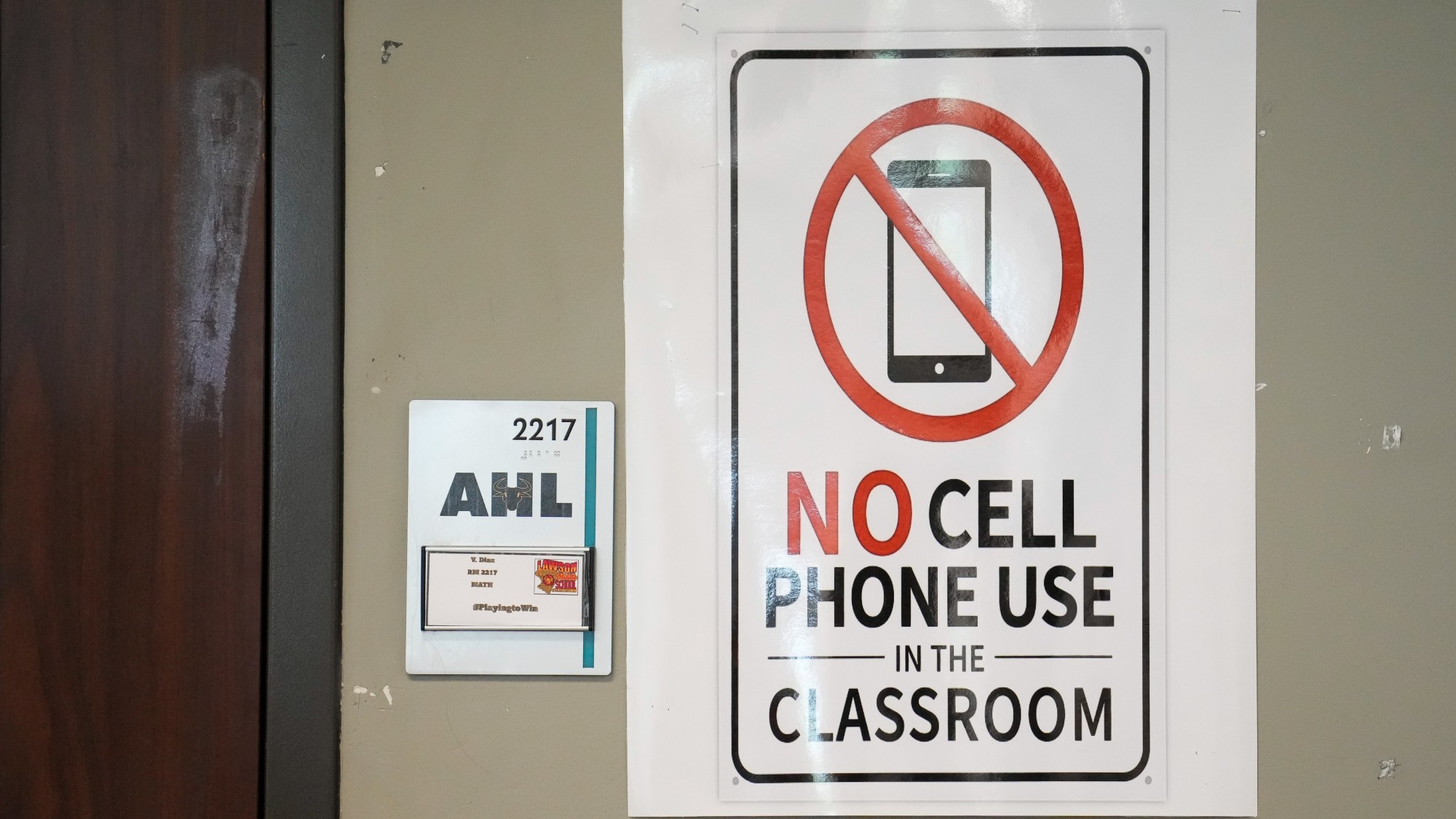Schools' Send crisis: how can it be fixed?
Government urged to reform support for children with special educational needs and disabilities and save councils from bankruptcy

A free daily email with the biggest news stories of the day – and the best features from TheWeek.com
You are now subscribed
Your newsletter sign-up was successful
The crisis in providing for children with special educational needs and disabilities risks creating a "lost generation" of young people if it isn't tackled urgently, the parliamentary watchdog has said.
A report by the Public Accounts Committee (PAC) warns that the current system of support for those with special educational needs and disabilities (Send) is "unviable". "Almost half" of local authorities face bankruptcy trying to fulfil provisions in their area, and families face a "postcode lottery" of waiting times for services.
The government was criticised by the "damning report" for "failing to deliver better outcomes for children" as well as lacking "any potential solution" to a rise in demand and the "existential threat" facing many local authorities, said The Guardian.
The Week
Escape your echo chamber. Get the facts behind the news, plus analysis from multiple perspectives.

Sign up for The Week's Free Newsletters
From our morning news briefing to a weekly Good News Newsletter, get the best of The Week delivered directly to your inbox.
From our morning news briefing to a weekly Good News Newsletter, get the best of The Week delivered directly to your inbox.
What did the commentators say?
The PAC report makes "clear the dire situation" and why the government "must take immediate action", said Joey Nettleton Burrows of the National Autistic Society in Learning Disability Today. Many children "can’t get the help" they need and "miss out on years of education", while their families are "forced to spend time and energy fighting long battles to get support for their children". He urged the government to "commit to all the recommendations in the report" to end the crisis.
Education Secretary Bridget Phillipson has accepted the report findings but has asked for "a bit of patience” to address issues. But there is "no time to wait" with the "system in crisis", said The i Paper. There are "deep-rooted problems" but those inside the Send system know what it needs to be brought back "from the brink". This includes "improving mainstream school Send provision", introducing "more special schools and specialist staff", and resisting "further cuts in the Budget" to local councils.
Meanwhile, many parents face "waiting times of several years" just to get a "diagnostic assessment" of their children before even being able to try to access Send resources, said The Guardian. Those parents denied education, health and care plans are then often going on to obtain them through appeal at tribunal, leaving councils at the "mercy of tribunals demanding that needs must be met, regardless of financial deficits". For parents, however, it can take "years of 'battle'" and personal financial sacrifice to "secure adequate support".
To make real change, though, those involved in education planning need to "reframe" the thinking around the "reality of learner complexity" to start to meet the needs of Send children within mainstream schools, said Margaret Mulholland in TES magazine.
A free daily email with the biggest news stories of the day – and the best features from TheWeek.com
Currently, by thinking of "diverse learners" as "costly" we "risk excluding them", and though "diversity and difference" is more and more recognised, it is "often oversimplified in education policy" and tailored to "homogenous" cohorts, she said. The education secretary must ask whether "our education system removes barriers to learning or creates them".
What next?
A report by the National Audit Office in October recommended the government carries out "wholesale reform" of the system, which has become an "adversarial battle between cash-strapped councils and desperate families", said The Guardian.
The government previously said that change to Send provision "will take time", and that it was focused on "mainstream provision and more early intervention". It is planning to write off £3.2 billion in "high-needs spending" deficits for local authorities and provide them with "sustainable long-term funding".
However, "money alone will not fix the educational needs of Send children", said Stefano Hatfield in The i Paper, and the current problem is an example of "two-tier Britain in action". The answer is "more, better trained, in-school professionals, as well as parents being more honest about their own children’s needs", he said. But the "reality is that we all have to manage our expectations about what a little money can achieve, however painful that is".
Richard Windsor is a freelance writer for The Week Digital. He began his journalism career writing about politics and sport while studying at the University of Southampton. He then worked across various football publications before specialising in cycling for almost nine years, covering major races including the Tour de France and interviewing some of the sport’s top riders. He led Cycling Weekly’s digital platforms as editor for seven of those years, helping to transform the publication into the UK’s largest cycling website. He now works as a freelance writer, editor and consultant.
-
 El Paso airspace closure tied to FAA-Pentagon standoff
El Paso airspace closure tied to FAA-Pentagon standoffSpeed Read The closure in the Texas border city stemmed from disagreements between the Federal Aviation Administration and Pentagon officials over drone-related tests
-
 Political cartoons for February 12
Political cartoons for February 12Cartoons Thursday's political cartoons include a Pam Bondi performance, Ghislaine Maxwell on tour, and ICE detention facilities
-
 Arcadia: Tom Stoppard’s ‘masterpiece’ makes a ‘triumphant’ return
Arcadia: Tom Stoppard’s ‘masterpiece’ makes a ‘triumphant’ returnThe Week Recommends Carrie Cracknell’s revival at the Old Vic ‘grips like a thriller’
-
 The pros and cons of banning cellphones in classrooms
The pros and cons of banning cellphones in classroomsPros and cons The devices could be major distractions
-
 School phone bans: Why they're spreading
School phone bans: Why they're spreadingFeature 17 states are imposing all-day phone bans in schools
-
 Schools: The return of a dreaded fitness test
Schools: The return of a dreaded fitness testFeature Donald Trump is bringing the Presidential Fitness Test back to classrooms nationwide
-
 Send reforms: government's battle over special educational needs
Send reforms: government's battle over special educational needsThe Explainer Current system in 'crisis' but parents fear overhaul will leave many young people behind
-
 Education: Can public schools be religious?
Education: Can public schools be religious?Feature A Supreme Court seems ready to rule in favor of religious charter schools in Oklahoma, which could reshape public education
-
 America's academic brain drain has begun
America's academic brain drain has begunIN THE SPOTLIGHT As the Trump administration targets universities and teachers, educators are eying greener academic pastures elsewhere — and other nations are starting to take notice
-
 Unschooling: the radical education trend raising eyebrows
Unschooling: the radical education trend raising eyebrowsUnder the radar Some parents are letting their children lead their education
-
 Satanists are pushing for representation in schools
Satanists are pushing for representation in schoolsIn the Spotlight The 'After School Satan Club' has been igniting controversy in recent months